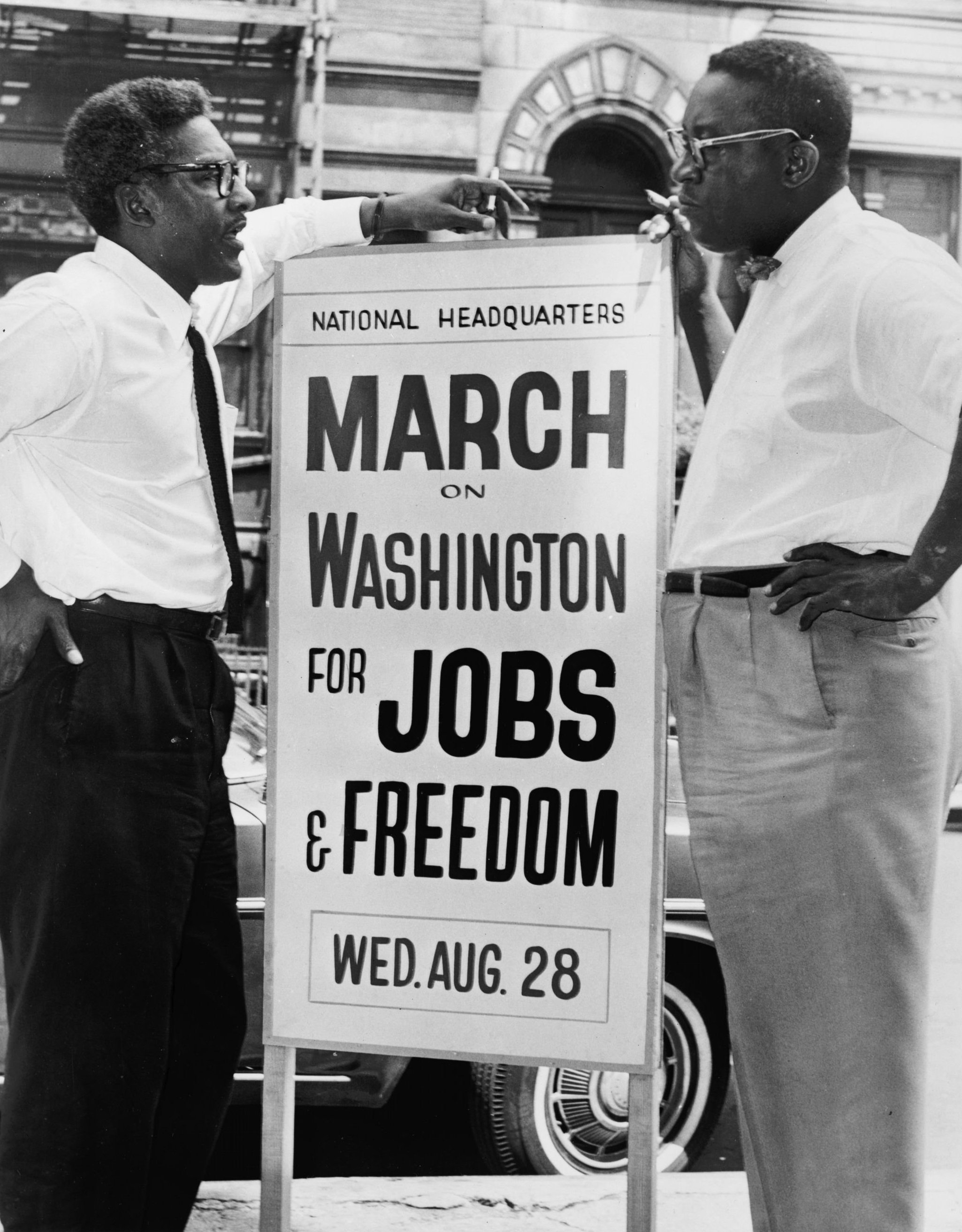When you think of the civil rights Bayard Rustin is obviously not the first name to come to mind. However, Rustin deserves a lot more respect than he is given; few people know that Rustin was actually the chief organizer of the 1963 March on Washington, where Martin Luther King, Jr. made his famous “I Have a Dream Speech.” As a leading member of the Congress of Racial Equality (CORE) Rustin put to use the same practices and principles as Mohandas Gandhi in his non-violent movement against British rule in India. Rustin then used his training to advise almost all the major civil rights leaders. If it were not for Bayard Rustin, who met with King to help organize the Montgomery Boycott on transportation, Martin Luther king, Jr. may have never adopted the non-violence tactics that the world has come to know today.
It’s hard to imagine how such an important figure slipped through the cracks, but one of the main reasons that Rustin never gained the same public recognition as his civil rights counter parts may have been because of his homosexuality. During the civil rights era Rustin not only received criticism from the general public, but even other civil rights leaders. Groups that wanted to impede the black agenda often used Rustin’s sexuality as a weapon.
Although Rustin let his homosexuality keep him from the public light, he still did very important work in the background. Rustin’s strategic insight and pacifist values helped unite the black movement behind many black improvement programs, like the 1963 March on Washington, which lead to the1964 Civil Rights Act and 1965 Voting Rights Act. Rustin also served as a founding member of the Southern Christian Leadership Conference, and joined American Friends Service Committee to write "Speak Truth to Power: A Quaker Search for an Alternative to Violence" one of the most influential pacifist essays in the country.
Even after much of the civil rights work had been done, Rustin kept fighting for equality. In his final years he stood as a key advocator for the Gay Rights Bill of New York, and as minority and gay rights gain their ground across the country, Rustin’s pacifist examples continue to shed light on the power of unity through pacifism.

No comments:
Post a Comment